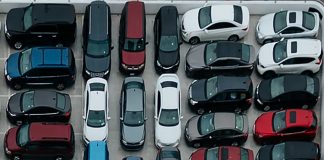Car dealerships, along with any other similar large-scale purchase, are risky business for the uninformed buyer.
In order to save money and get the best deals possible it is crucial to understand the inner workings of your products supplier.
Dealerships are required to first purchase the cars in their lot and pay a percentage to keep the vehicles.
So naturally, they are anxious to sell the vehicles in order to turn around profits.
Some months are slower and some vehicles are just not popular.
The inconstant purchasing patterns leave certain models on the floor longer.
Best Models
When the dealership is aware it will no longer make a hefty profit on the car they will sell them out in bulk.
This gives the Dealership more floor space for newer cars.
These sales are frequent and familiar to the buyer through their boisterous commercials.
The dealer himself makes a commission on how much over the invoice price he’s sold the car for.
This isn’t a loss for the dealership.
The Dealer originally put the sticker price of the vehicle hundreds if not thousands of dollars over the original invoice price.
High markup ensures profits no matter when the sale was made.
However, as the buyer, this is important to keep in mind and use when it comes to haggling for a more affordable price.
Major Deal Events
Of course, there are many other factors that will push dealerships in hosting large-scale deals and sales.
A major one being competition.
Not only from the sweat of other dealerships’ sales but also to newer models and advances coming out yearly.
This strains the turn around time a vehicle has to gain popularity.
If you’re looking to purchase a new vehicle, it is crucial to do some research and browse through the many different options and offers there are at your disposal.
Negotiate the Deal
Once you’ve settled on a decision, let the dealer do the talking but don’t be afraid to haggle on the price.
On matters of buying versus leasing, however, it’s also important to weigh your options.
The motto goes ‘ buy what appreciates, lease what depreciates.’
This means, unless you have the money upfront or are looking to do repairs or adjustments to the vehicle, it’s better to lease.
If you are completely set on buying, it’s best to buy used.
Leasing now comes with many added benefits.
Maintenance and checkups and you can keep a check on your payments and trade in your vehicle every few years as well.




